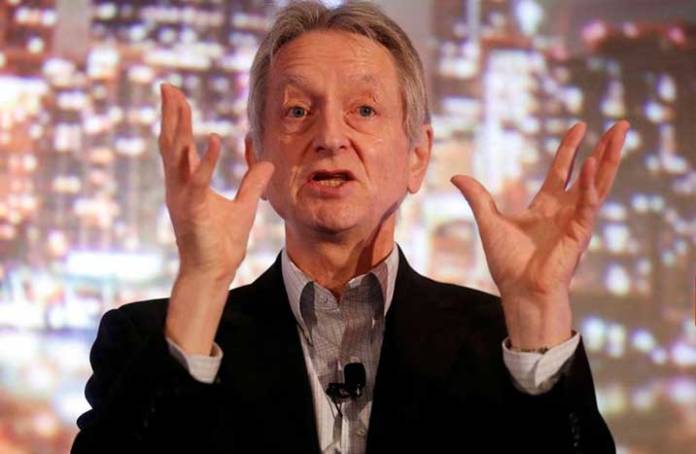
One of the so-called three “godfathers of AI,” Geoffrey Hinton, said artificial intelligence actually poses a greater threat than climate change. The former Google executive and 2018 winner of the ACM Turing Award – the Nobel Prize for computer science – said digital intelligence (AI) appears to be getting better than biological intelligence (human brain) and that this is dangerous to humanity.
Hinton said one of the reasons he left Google was because of his advanced age (he’s 75 years old) and because of the need to talk freely about his former employer without being throttled. He said Google remains a global leader in artificial intelligence and deep learning which he pioneered, but the rising risk of technology remains real and people need to heed the warnings.
He said that despite the risk of climate change destroying our world as we know it, the real concern should be over AI. “But I think this might end up being more urgent,” Hinton said. “With climate change, it’s very easy to recommend what you should do: you just stop burning carbon. If you do that, eventually things will be okay. For this, it’s not at all clear what you should do.”
Backed by Microsoft, OpenAI launched ChatGPT in November 2022 and hit 100 million users within two months; Google responded with Bard AI in January 2023 with millions of potential users going for it. Hinton said Google was hesitant to launch AI because they are aware of the risks it poses at overcoming human intelligence, but Google’s rivals were not that considerate since they are driven by profit.
“It’s not that Google’s been bad,” he stated. “In fact, Google is the leader in this research, the core technical breakthroughs that underlie this wave came from Google, and it decided not to release them directly to the public. Google was worried about all the things we worry about; it has a good reputation and doesn’t want to mess it up. And I think that was a fair, responsible decision. But the problem is, in a capitalist system, if your competitor then does that, there’s nothing you can do but do the same.”
In April, Twitter CEO Elon Musk joined thousands of people to sign a document suggesting a six-month pause in creating AI systems that are more powerful than OpenAI’s new GPT-4. Stability AI CEO Emad Mostaque, researchers at Alphabet-owned DeepMind, and AI pioneers Yoshua Bengio and Stuart Russell among other people also signed the open letter.
“The tech leaders have the best understanding of it, and the politicians have to be involved,” said Hinton. “It affects us all, so we all have to think about it. I’m in the camp that thinks this is an existential risk, and it’s close enough that we ought to be working very hard right now, and putting a lot of resources into figuring out what we can do about it.”










